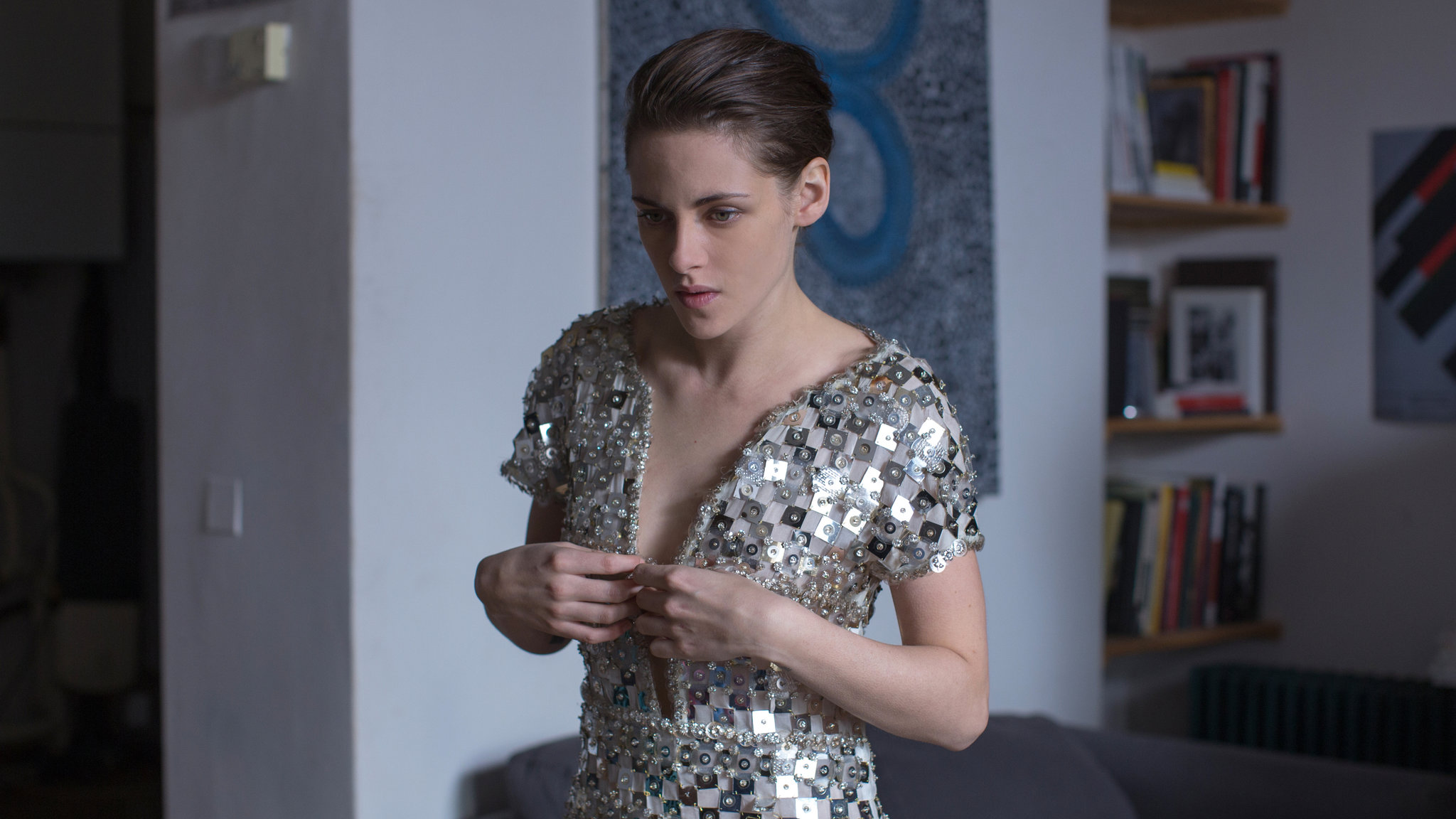Olivier Assays’ startling new character study, Personal Shopper, is a movie about loss and guilt and identity, enervated by a terrific Kristen Stewart. It’s also an offbeat ghost story that subverts genre to get at something deeper, and more mysterious.
Their first collaboration together, Clouds of Sils Maria, found Stewart as a no-nonsense personal assistant to Juliette Binoche’s fading European movie star, and one for which Stewart won the Cesar, the only American actress in history to do so.
Lightning strikes again here with the fearless star, a channeler of her own special energy, playing an American expat living in Paris, and in two worlds, with a foot in a third.
In her best role, Stewart is Maureen Cartwright, a personal assistant and shopper for an international model (Nora von Waldstatten) whose job is to outfit the debutante in all manner of high style couture. The women share the same size, so Maureen jaunts around town to high-end boutiques, procuring jewelry and all manner of chic designer ensembles, forbidden to try any of the items on.
It’s a job and world she despises, and one that is slowly killing her soul. Her real passion? She’s a medium who can see and feel spirits and energies on another plane, and having just lost her twin brother to a congenital heart condition that she shares, she is anxious for a sign from him, an arrangement they made prior to his passing.
For this reason, she won’t leave Paris until she makes contact, and she spends her evenings alone in his darkened former home. One night she does make contact with a restless entity that does not appear to be her brother, and the understated elegance of the CGI betrays the American notion that bigger is always better.
Things get darker, and fascinating, when Maureen begins to receive text messages that may be originating in the beyond, and Assayas, with cool sophistication and irony linking the modern world to the spiritual plane, even has the potential ghost communicating with read receipts, an unnerving touch.
But is it the ghost—or someone else—that seems to be watching Maureen’s every move? It certainly is us, and Assayas’ roving, subjective camera follows Maureen from the byways of Paris to London and back; to dark, shadowy houses and bright designer shops; on high-speed trains and mopeds.
Stewart, navigating much of the picture silently or in banal interactions, is a force here, navigating solitude believably and fearlessly disrobing in a way most young actress wouldn’t dare. Her scene in a stylish, peek-a-boo dress, which she surreptitiously tries on to her own kinky delight, is stylish to a fault.
Assayas builds supreme suspense in the film’s final third, never more than when Maureen takes her phone out of airplane mode and a raft of menacing messages suddenly appear. And then, an act of violence turns the plot.
The ambiguous conclusion is open to interpretation, but pay attention the final fade out and those that have come before. Many will no doubt be left scratching their heads, but this haunting movie is after notions of connection in an increasingly impersonal world—and those in another.
3 1/2 stars.



